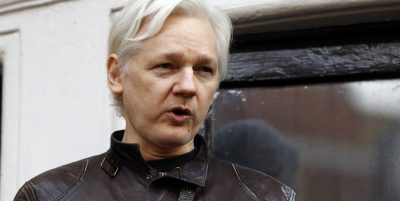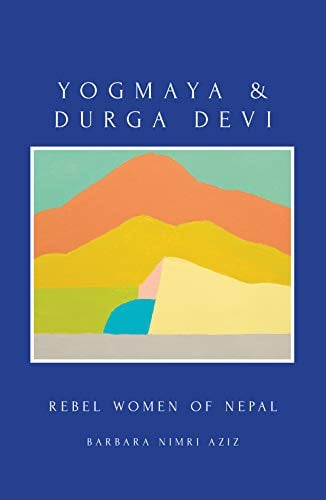Liberty for Julian Assange
Join Me in My 2023 New Year Resolution

All Global Research articles can be read in 51 languages by activating the Translate Website button below the author’s name.
To receive Global Research’s Daily Newsletter (selected articles), click here.
Follow us on Instagram and Twitter and subscribe to our Telegram Channel. Feel free to repost and share widely Global Research articles.
***
WikiLeaks founder Julian Assange’s vindication seems — maybe, perhaps, imaginably — achievable. It’s enough for me to publish my singular New Year resolution — not a wish, but a firm resolution — to more actively contribute to growing pressure to free Julian Assange, the mistreated, vilified and imprisoned, brave and brilliant founder of WikiLeaks.
It’s a finite issue, unlike negotiations to end a raging war or a global agreement on climate controls. Yet freeing Assange had appeared almost insurmountable not long ago. Whereas, given the painstaking pursuit to free Assange by a pitifully small coterie of determined supporters, some success may be at hand.
Their movement’s goal is clear: the U.S. government must drop its extradition order. Then, Assange should be released from Britain’s notorious Belmarsh prison, where he’s held only on a charge of dodging a bail hearing. Then, if faced with further legal action, his lawyers argue, he should be detained in his own country, Australia.
During these four years in Belmarsh, Assange’s situation looked bleak. Particularly because his struggle for justice was essentially ignored by the press and thereby by the public, including many human rights groups. The very newspapers which so righteously published WikiLeaks’ documents revealing Washington’s criminality in Iraq and elsewhere, maligned him. Then they abandoned the principle of press freedom which he represents. In 2019 when a new Ecuadorian leader revoked Assange’s asylum in their London embassy, British authorities forcibly removed Assange from the embassy and slapped him into Belmarsh prison. Then the U.K. government initiated hearings regarding Washington’s request for his extradition to the U.S. A series of challenges by Assange’s legal team yielded little hope of success.
With diminishing legal options, freedom of journalists and publishers to expose government wrongdoings became an increasingly louder argument for Assange’s release. That seemed to garner new attention. More journalists joined the free-Assange movement, perhaps realizing the implications that a successful indictment of Assange might hold for themselves.
A few weeks ago, the world heard Assange’s name after a decade-long blackout. Unexpectedly, on Nov 28th those same press giants largely responsible for that blockade and for defaming Assange, decided to speak against his prosecution by U.S. authorities.
Their plea became headline news—as if the case was just discovered. The New York Times, joined by its peers in the U.K., France and Germany, published an open letter headlined “The U.S. government should end its prosecution of Julian Assange for publishing secrets”. Their brief statement made its appeal on the principle of press freedom. “This indictment sets a dangerous precedent, and threatens to undermine America’s First Amendment and the freedom of the press. Holding governments accountable”, it said, “is part of the core mission of a free press in a democracy.”
Too often, the same public who’d cared little about Assange’s fate or interpretations of press freedom which his prosecution raises, suddenly had a change of heart. The voice of those news giants is so frightening in its power to single-handedly transform public opinion and government policies. Although we still don’t know how that appeal will affect Washington’s extradition order.
I will not join those who applaud the media giants’ new posture. What we ought to reflect on is the real source of this ideological change: the quotidian struggle to win his freedom, year-after-year, against seemingly impossible odds. It was not human rights organizations or our supposed-free press who did this. It was individuals. The changed public mood derives from painstaking efforts by a small group of lawyers, family, and media critics who themselves became unpopular and marginalized for their support of the imprisoned man. I have no doubt that the breakthrough represented in that highbrow open letter wouldn’t have been possible without the tireless, persistent educational and legal campaigns by that committed team.
I was aware, having followed their legal appeals and public events for more than a decade, of a remarkable by little publicized October 9th London protest, perhaps a watershed in the campaign: more than 5,000 individuals linked hands, forming a human chain around the British parliament building to call for Assange’s release. A glowing, living example of support.
Not long before that, the film Ithaka was released – a video document of the campaign led by Assange’s family members, most notably his 76-year-old father John Shipton. (The elder Shipton’s eloquence and compassion are deeply moving.) During the U.S. tour portrayed in Ithaka, Shipton and Assange’s brother Gabriel often drew hardly more than a dozen listeners. (Audiences were larger in Europe and Australia.)
On December 1st, the Australian government which had hitherto made no effort to aid Assange, indicated a new position. “Enough is enough”, proclaimed Australia’s recently elected Prime Minister Anthony Albanese.
In recent weeks, celebrated press freedom campaigners like Daniel Ellsberg announced—“Indict me too”, since he himself had released government secrets. Guests who’d visited Assange at the Ecuadorian Embassy learned that their phones and other items submitted to embassy security had been turned over to the CIA; they are now suing former CIA director Pompeo along with others for violating their rights.
How much more is needed to force the U.K. and U.S. governments to reverse their policy and free Julian Assange? Given the apparently successful efforts of that slight but resolute group of supporters, we should be encouraged to personally lend our weight, however modest, for the final push.
The best source on this remarkable effort: I recommend Consortium News, a website founded in 1995 by the late investigative journalist Robert Parry. Thank you and Happy New Year Joe Lauria and the CN team.
*
Note to readers: Please click the share buttons above. Follow us on Instagram and Twitter and subscribe to our Telegram Channel. Feel free to repost and share widely Global Research articles.
Barbara Nimri Aziz whose anthropological research has focused on the peoples of the Himalayas is the author of the newly published “Yogmaya and Durga Devi: Rebel Women of Nepal”, available on Amazon.
She is a regular contributor to Global Research.
“Yogmaya and Durga Devi: Rebel Women of Nepal”
By Barbara Nimri Aziz
A century ago Yogmaya and Durga Devi, two women champions of justice, emerged from a remote corner of rural Nepal to offer solutions to their nation’s social and political ills. Then they were forgotten.
Years after their demise, in 1980 veteran anthropologist Barbara Nimri Aziz first uncovered their suppressed histories in her comprehensive and accessible biographies. Revelations from her decade of research led to the resurrection of these women and their entry into contemporary Nepali consciousness.
This book captures the daring political campaigns of these rebel women; at the same time it asks us to acknowledge their impact on contemporary feminist thinking. Like many revolutionaries who were vilified in their lifetimes, we learn about the true nature of these leaders’ intelligence, sacrifices, and vision during an era of social and economic oppression in this part of Asia.
After Nepal moved from absolute monarchy to a fledgling democracy and history re-evaluated these pioneers, Dr. Aziz explores their legacies in this book.
Psychologically provocative and astonishingly moving, “Yogmaya and Durga Devi” is a seminal contribution to women’s history.



